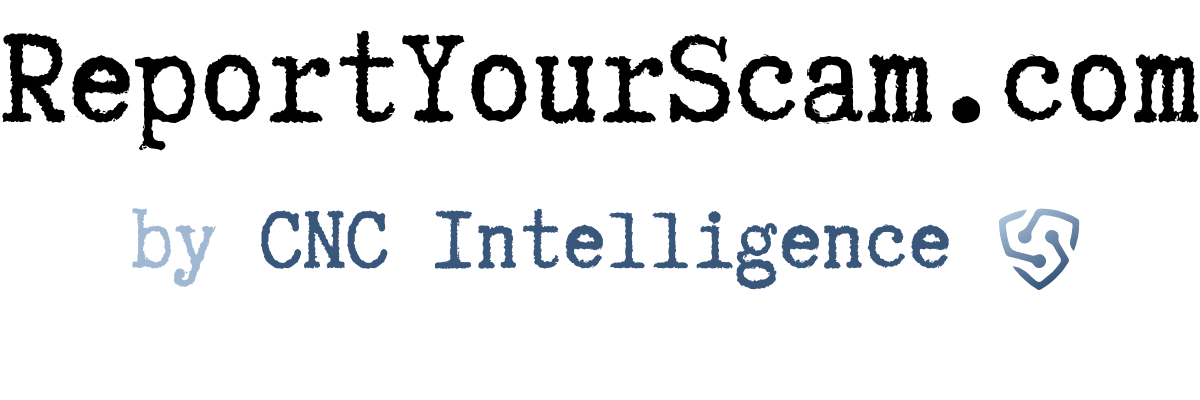Welcome to our Coursera Plus review regarding the website at Coursera-plus.org.
Did they scam you? Let us know by commenting below, and we will provide personalized advice.

Coursera Plus Complaint
On October 21, 2023, we received the following complaint from a person who reported being scammed for over $70K:
At the beginning of this fall, in mid-July, I enrolled in an online Financial Market course offered by Yale University on the Coursera.org website. Coursera.org is an educational company that hosts over 7,000 online courses from various universities, including Yale University. The Financial Markets course is taught by the renowned professor and economist Robert J. Shiller.
After signing up, I engaged with pre-recorded videos and completed exercise problems. About a week and a half later, I received a message under one of the class videos—an invitation from Robert Shiller to join a WhatsApp group where I could interact with classmates, and he would conduct live classes. I joined the group, which included 50 other students, making us 51 members in total.
Over several weeks, we were taught numerous lessons on financial markets. In late August 2023, the concept of Algorithmic Trading was introduced. It involves computerized mathematical programming that autonomously makes trading decisions based on predefined conditions or inputs. He also shared his portfolio, which included about $6,000,000 worth of Bitcoin, and explained that an algorithm built by the educational company Coursera could facilitate investments in various plans such as:
- Economy Plan: 15% return in 24 hours ($1,000 – $5,000)
- Premium Plan: 28% return in 24 hours ($3,000 – $10,000)
- Enterprise Plan: 30% profit in 48 hours ($5,000 – $9,999)
- VIP Plan: 50% profit in 72 hours ($10,000 or more)
He encouraged all students to invest in applying the teachings practically.
Investments were made, and there was persistent encouragement to invest more, emphasizing a long-term strategy. The investment process involved purchasing crypto from wallets like crypto.com and transferring funds to Coursera-plus.org for algorithmic trading. After a specific duration, based on the chosen plan, the platform purportedly displayed the invested capital plus profits.
However, his continuous urge for more investments and discouragement against withdrawals raised suspicions. Consequently, I investigated and contacted Coursera.org, where the Financial Market course was hosted, seeking clarity on the investment platform associated with Coursera. The agent, unaware of any platform Coursera owned, confirmed my suspicions.
My apprehensions grew; I had invested $70,000, while collectively, students had invested over $1,000,000. Subsequent investigations, with a cybersecurity friend’s assistance, revealed the site as fraudulent, infringing on trademarks and copyrights, and impersonating another company.
How did the professor or impersonator access our student information, such as class schedules and enrollments? Could there have been an insider from Coursera involved, providing him with this exclusive information?
Immediate actions are necessary as unsuspecting students are still making investments. The individual’s real identity, whether he is the actual Professor Shiller or an imposter, and possible internal collusion within Coursera needs urgent unraveling. Yale University also conducts investigations to ascertain the truth in this perplexing situation.
Analysis of this Scam Report
This scam can be classified as a combination of various fraudulent activities, which include:
- Educational Scam/Misrepresentation of Affiliation: The scammer claimed affiliation with reputable institutions like Yale University and Coursera.org, leveraging their names to build credibility.
- Investment Scam (Ponzi Scheme/High-Yield Investment Program): Promising exceptionally high and quick investment returns to lure victims.
- Phishing: Utilizing information that seems illicitly obtained from the Coursera platform to target specific students.
- Impersonation/Fake Identity: The scammer posed as Robert J. Shiller, a well-known professor, to give the scam more legitimacy.
- Trademark/Copyright Infringement: Creating a fraudulent website that mimics Coursera’s, violating trademarks and copyrights to mislead victims.
- Cryptocurrency Scam: Utilizing cryptocurrencies for transactions adds a layer of anonymity and complexity to the scam.
- Cybersecurity Breach/Insider Threat (Suspected): Insider involvement is suspected where exclusive information might have been leaked to conduct the scam more effectively.
- Social Engineering: Utilizing a WhatsApp group to create a sense of community and trust, making the victims more susceptible to the scam.
Response and Mitigation Strategies
- Immediate Cease of Investment: Stop investing further and avoid sharing any more personal or financial information.
- Reporting: Report the scam to relevant authorities such as law enforcement, cybersecurity agencies, Coursera, and Yale University for immediate action.
- Public Awareness: Raising awareness within the community about the ongoing scam to prevent more individuals from becoming victims. Please share this article on your social media accounts!
- Secure Personal Information: Victims should secure their personal and financial information to prevent further exploitation.
By conducting a multi-faceted scam, the fraudster has been able to exploit the trust and vulnerabilities of the students, leading to significant financial losses and breaches of personal information. Immediate action and investigation are crucial to mitigate the impact of this scam and prevent it from increasing further.
Coursera-plus.org Review
Coursera-plus.org was registered for one year through Namesilo on June 27, 2023. PrivacyGuardian.org protects it, while OVH SAS hosts it.
In September 2023, it received 8.6K visits, according to SimilarWeb. Visitors originated from Turkey, the United States, India, Brazil, Portugal, etc.
Its SEMrush Authority Score is 2%, with 2 backlinks from 2 referring domains.
Based on the information from the Google index, we learn that Coursera-plus.org is a distinctive investment company. It offers investors access to high-growth opportunities in various markets. The site claims to provide solutions to stock investment problems. A professional team of traders and analysts boasting years of experience allegedly runs the platform. They claim to study the market meticulously, ensuring customer benefit.
The website also portrays itself as a certified forex/CFD and crypto-mining platform. Asserting a unique position, they claim a business history dating back to 2015 in the forex/crypto mining sectors. Additionally, the site efficiently bridges gaps between its services and clients.
The website includes various functional sections such as login and registration. These sections facilitate user access to their investment accounts and services. Interestingly, the platform also exhibits a specific location as its headquarters, adding a layer of purported authenticity.
In review, Coursera-plus.org aims to project an image of a comprehensive, professional, and experienced investment platform. It focuses on forex, CFD, and cryptocurrency, emphasizing its unique and efficient service provision. Transitioning from these claims, a discerning evaluation and verification of the site’s offerings and authenticity are imperative for prospective users and investors.
Let’s go into Coursera-plus.org to learn more details and discern whether or not this is a legitimate opportunity.
Coursera-plus.org – Website Analysis
The website is an investment platform specializing in share dealings, stock investments, and cryptocurrency trading, bearing the name “Coursera-plus.” Operating from an address located at 381 E. Evelyn Ave, Mountain View, CA 94041 USA, they facilitate various investment plans, encouraging potential investors to deposit funds for promised returns. (Note that this address is the actual address of Coursera.)
They emphasize flexibility, convenience, and assurance of secured transactions, as evidenced by details on their offered plans and user benefits.
Transitioning to red flags, the website’s content appears notably inconsistent and misleading. Strikingly, the site uses the Coursera name (and address), a well-known online educational platform, which raises questions about its authenticity and intention. Furthermore, substantial regulatory or company information is lacking, which is essential for establishing trustworthiness in financial dealings.
The site also fails to clarify essential aspects, such as the team behind the operations, their experience, and specific strategies for generating the promised profits. Also noteworthy is the absence of explicit risk disclaimers and detailed explanations of potential investment losses, a typical characteristic of reliable investment platforms. Instead, it promises high returns and profits without transparently explaining the risks and operational methods. Lastly, the website emphasizes getting started and making deposits, focusing more on customer recruitment than clear, value-based investment strategies or services.
In conclusion, the site displays several red flags, such as misleading identity, lack of regulatory disclosure, and transparency, warranting a cautious approach when considering investment involvement.
Coursera Plus Reviews
The only Coursera-plus.org review currently available on Google is a webparanoid.com automatically generated report.
Webparanoid.com has flagged Coursera-plus.org as a suspicious and low-trust site, advising users to exercise caution. The review highlights that the website lacks credibility markers such as links to social networks, a feature shared with reputable online entities. Additionally, it identifies a critical red flag: the website’s recent creation, as scam sites often operate briefly.
Furthermore, the analysis uncovers that Coursera-plus.org is not well-trafficked, indicating limited user interaction or trust. It also uncovers technical aspects, identifying the website’s association with numerous suspicious sites. This connection raises more doubts about its legitimacy and intention.
No reports or complaints are available regarding user feedback, leaving the site without user-backed validation or credibility. The absence of user reactions and the noted red flags, such as recent creation and lack of social network links, position Coursera-plus.org as potentially unreliable and not recommended for sharing personal information or making purchases. The site’s offerings promise unlimited access to a vast array of online courses, but the suspicions raised call the validity and safety of these offers into question.
In conclusion, based on the various elements highlighted by the review, it’s prudent to approach Coursera-plus.org with heightened caution. The site presents several inconsistencies and red flags, making it hard to establish its trustworthiness and reliability online.
Coursera Reviews
While investigating Coursera-plus.org, we did not find a lot of information. However, we did find quite a few complaints about Coursera itself. We invite anyone scammed by Coursera or a Coursera impostor to report it by commenting below.
A review on a subreddit dedicated to Coursera warns users of a negative experience, painting the platform untrustworthy. The reviewer claims that Coursera effectively trapped them into a $49 monthly billing cycle, failing to send timely alerts for billing. Such a strategy left the user financially strained, unable to afford essential medical supplies. The reviewer also highlighted a troubling user experience, citing frequent and disruptive pauses during video playback. The overall sentiment from the review is of strong dissatisfaction and a feeling of being misled by Coursera’s billing practices.
Comments on the review offer various perspectives. One commenter expresses disappointment, reminiscing about a more favorable experience with Coursera in its earlier years. This individual perceives a decline in the platform’s quality and ethos, equating it to dubious, low-quality educational institutions advertised on television. Another commenter provides a practical suggestion, advising the disgruntled user to contest the unexpected charges through their credit card company. This advice reflects an attempt to navigate and mitigate the issues raised against Coursera’s billing practices.
ConsumerAffairs
Several Coursera users have expressed dissatisfaction with the platform’s billing practices and customer service. Users frequently encounter unexpected charges, such as automatic billing after free trials, without adequate notice or consent. Many found it challenging to obtain refunds and navigate the platform’s cancellation process, describing the customer service as unhelpful or inaccessible. Users also mentioned receiving multiple charges for courses they didn’t actively participate in.
Transitioning to the course quality, there are notable criticisms as well. Customers have observed a decline in course quality and support, feeling the platform has become more profit-driven. Technical issues within the courses and lack of support were common grievances, hindering the learning experience.
Lastly, consumers advised potential users to exercise caution when providing payment information and to be prepared for difficulties contacting customer service and managing subscriptions. The overall sentiment leans toward disappointment due to billing practices and course management, diminishing the perceived value and trust in the platform.
Trustpilot
Customers overwhelmingly express dissatisfaction with Coursera’s services. Most grievances revolve around customer service and billing issues. Firstly, the customer service is consistently described as unresponsive and unhelpful. Many customers feel ignored, struggling to receive assistance or refunds. Secondly, the billing process lacks transparency. Several users feel cheated, encountering unexpected charges and difficulties canceling subscriptions or obtaining refunds.
Additionally, the platform’s educational content also falls under criticism. Customers find the course quality lacking, with some mentioning that free platforms offer better or similar content. Users also encounter technical difficulties, ranging from platform errors to a lack of necessary software for courses. Lastly, the peer-review system and the overall effectiveness of the courses in aiding job searches are also met with skepticism.
BBB
Customers have expressed strong dissatisfaction with Coursera, according to various reviews. Most users find the cancellation process cumbersome and misleading. They face difficulties canceling subscriptions, often resulting in unexpected charges. Additionally, there are widespread complaints about inadequate customer service. Users struggle to get timely and effective responses to their queries and issues.
Moreover, there’s a notable lack of transparency in billing. Charges are often unclear or not well communicated, catching users by surprise. Some customers also reported not receiving certificates upon course completion, hampering their job prospects. Technical issues, like problems with website functionality and course access, further aggravate customers’ experiences.
Ultimately, these reviews paint a picture of a company with a flawed system that lacks customer-focused service, transparency, and reliability. Customers generally advise against using the service due to these negative experiences. In conclusion, prospective users should exercise caution and conduct thorough research before subscribing to Coursera.
Conclusion
In concluding our review, here’s what we’ve discerned about Coursera-plus.org. Initially, the site presents itself as a lucrative investment opportunity. Unfortunately, multiple red flags unravel this façade. First, there’s a questionable association with the reputable Coursera brand. This affiliation seems a deliberate ploy to borrow credibility and trust.
We delved into the victim’s experience, navigating through the labyrinth of deception. This scam is characterized by misrepresentation, high-yield promises, and a cloak of educational legitimacy. The impersonation of a renowned professor adds a layer of persuasive authenticity. But the silence on operational transparency screams caution.
Furthermore, the site’s technical and operational markers evoke suspicion. It lacks substantial traffic, user interactions, and external validations. The absence of user testimonials and feedback leaves a credibility vacuum. Instead, we find a landscape littered with automatic red flags and advisories against engagement.
Also noteworthy is the contrast between the real Coursera and Coursera-plus.org. Genuine user experiences on Coursera oscillate between appreciation and frustration. But with Coursera-plus.org, there’s a glaring absence of user-backed validation or authenticity.
Bottom Line
Finally, our exploration underscores a crucial lesson—vigilance. In the online arena, where opportunities and scams blur lines, meticulous scrutiny becomes our ally. Before venturing into such platforms, a discerning evaluation, armed with skepticism, is essential. Protecting oneself against the undercurrents of deception and potential financial turmoil is paramount. Thus, we advise caution and comprehensive examination before engaging with sites like Coursera-plus.org.
If you are a victim of online scams, please let us know by commenting below, and if you have lost a significant amount of money, do not lose hope. We can help you recover your funds!




Decent trade, siu trade 5 and cyber-Cafu are all scammers… pls be careful n u have no way to get your money back… the scammers are fb we chat ig wts users to convince I to invest into that stupid fxxking platforms. I already mentioned I don’t need money m I am not greedy… but they used someone non sense to “help” u to be better or kind of promise or agreement that I never promise. Then, they criticize u and your personality. Told them I only believe in bank and there is no overnight getting wealthy… they are so terrible that I need to support my gals and I had committed suicide b4… they still attack u and try to squeeze u as much as they can. This is my experience n luckily I can still survive…
Dear Eileen,
I’m terribly sorry to hear that you’ve had such a distressing experience, and it’s commendable that you’ve shared your story to warn others about these malicious scams. Your courage in speaking out is a powerful tool in preventing others from falling victim to similar fraudulent schemes. It’s essential to remain vigilant and skeptical of too-good-to-be-true investment opportunities, especially those promoted on social media platforms like Facebook, Instagram, WeChat, and WhatsApp.
Remember, legitimate investment opportunities will never use manipulative tactics, harass, or criticize individuals. It’s crucial to conduct thorough research and due diligence before engaging in any investment, and consider seeking professional advice if something feels off or too risky.
If you’ve lost a significant amount in cryptocurrency due to these scams, our affiliated company, CNC Intelligence, specializes in assisting law enforcement and law firms in asset and fund recovery cases related to cryptocurrency. CNC Intelligence does not directly recover funds but provides necessary evidence and support to legal entities in their recovery efforts. Their team of Cryptocurrency Forensic Specialists can trace the movement of cryptocurrencies and offer comprehensive investigation services to enhance the capabilities of law enforcement and legal professionals dealing with asset recovery.
Please, if you ever feel overwhelmed or in despair, seek professional help immediately. There are helplines and mental health professionals who can provide support and guidance during difficult times.
Remember, you’re not alone, and there are people and organizations willing and able to assist and support you through this. Stay strong, and don’t hesitate to reach out for professional help if needed.